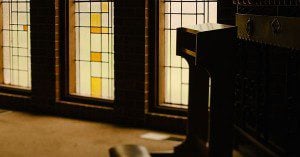My Response to “The Five Emerging Factions of Evangelical Higher Education”
*Note to would-be commenters: Keep it brief (no more than 100 words), civil (no hostile, argumentative or insulting comments), and on topic. Do not include links or photos. Respond to me only. This is not a discussion board.*
Here is the link to the Patheos essay to which I am responding here:
Patheos.com/blogs/anxiousbench/2022/04/the-five-emerging-factions-in-evangelical-higher-education/
Normally I don’t respond to other blogs here. However, this one caught my interest and I asked you all to tell me which of the five “emerging factions” I belong to. One person emailed me privately and suggested I belong to the fourth faction of the five. It is the “Gender egalitarians” faction. Here is my response:
First, I’m not at all sure there are five “factions” in evangelical higher education. “Factions” sounds like they are in some conflict with each other; I would prefer to talk about “postures” or “styles” or something other than “factions.” Also, my view is that every evangelical college, university and seminary is different from every other one. I know evangelical seminaries where all five of those postures exist on the faculties.
Second, with the author of the essay, I have my doubts about whether any institution of higher education that, as a whole, is pro-LGBTQ is still evangelical. I guess time will tell—as the definition of “evangelical” continues to evolve. Personally, as I have said here many times, I am an essentialist and therefore don’t think “evangelical” evolves, but in the popular mind, anyway, it certainly does.
(I have to explain myself again to head off questions and objections. I define categories like “evangelical” historically—by the founding and defining prototypes. By “essentialist” I don’t mean that I believe there is anything like a Platonic “form” of “evangelical.” I mean that the category “evangelical” ought to continue always to be defined by its founding and defining prototypes. Otherwise it becomes so flexible as to be meaningless.)
The author’s first “faction” sounds to me like fundamentalist. And this is one of my problems with the current use of “evangelical”—it has been stretched to include fundamentalists. In the past, at least since the mid-century, “evangelical” and “fundamentalist,” although certainly related (like cousins) belong to different “families” of conservative Protestant Christians.
So, I have trouble including the institutions the author includes in the first and fifth categories as undeniably, unquestionably “evangelical.” I think they belong in different categories such as “fundamentalist” and “progressive Christian” (if not “liberal Protestant”).
My biggest complaint is that I don’t think “Gender egalitarians” is really a category of institutions of higher education. There have always been evangelical seminaries and colleges—especially in the Wesleyan tradition—that have been egalitarian with regard to gender—at least since the late 19th century. And there are evangelical institutions of higher education (and denominations) that permit both gender egalitarians and gender complementarians within their ranks.
And that brings up—me. As I have said here before many times, I am and always have been both a gender egalitarian and a gender complementarian. I believe in absolute equality of men and women, boys and girls AND in real differences between the genders, differences that complement each other. And I know there are many people who embrace within themselves aspects of both genders. But that does not diminish the reality of sex-gender. In other words, I still refuse to reduce gender to social conditioning.
Well, all that is to say that I think the essay is interesting, worth reading and considering, worth responding to. But I suspect one could easily expand the categories (“factions”) to many more than five if one looked at all the evangelical institutions of higher education through different lenses than political-postures and orientations to social issues.













